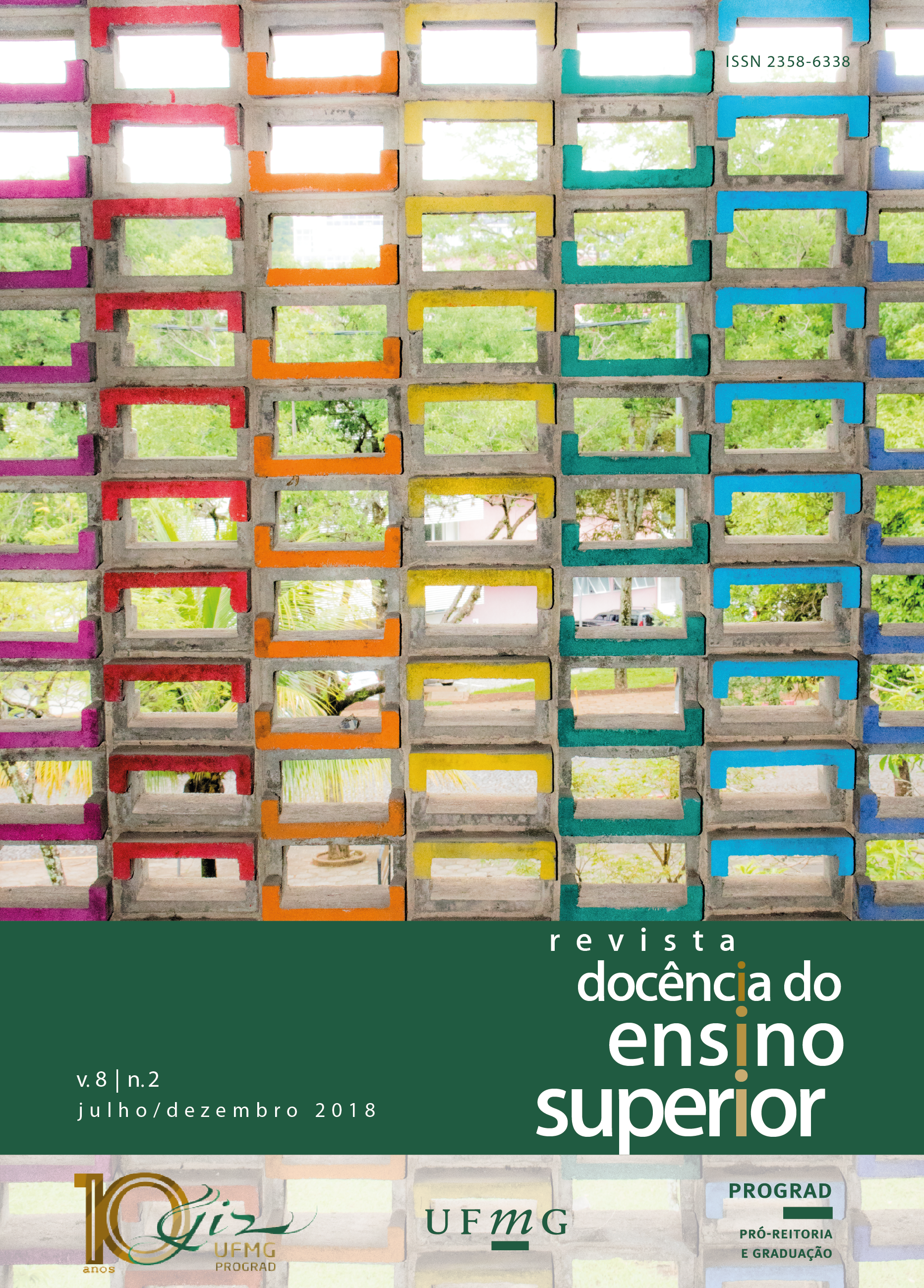Program of academic excellence (PROEX)
a report on how to become a professor in higher education
DOI:
https://doi.org/10.35699/2237-5864.2018.2517Keywords:
Teacher education, Higher education, Teaching internshipAbstract
Based on qualitative interpretive research and action research approaches, and in the light of situated learning theory, in this paper, by means of a report, we analyze how PROEX funded by the Brazilian Federal Agency for Post-graduate Education (CAPES) promotes teacher development for higher education. Data for this study was generated during four months in the English internship course in the undergraduate language teaching degree in a federal university located in the South of Brazil. The corpus of this work is composed of field diaries generated from post-observation feedback meetings of the classes carried out among the supervisor professor, the graduate student and the trainees. The results show that, in this context, the practices experienced by one of the authors contributed to the professional development to teach in higher education, the participation of the postgraduate student increased in complexity and engagement and the student moved from peripheral participant to full participant.
Downloads
Downloads
Published
How to Cite
Issue
Section
License
Authors who publish in this journal retain the copyright and grant the journal the right of first publication, with the work simultaneously licensed under the Creative Commons Attribution License which allows the sharing of work with acknowledgment of authorship and initial publication in this journal.
Authors are authorized to take additional contracts separately, for non-exclusive distribution of the version of the work published in this journal (e.g. publish in institutional repository or as a book chapter), with acknowledgment of authorship and initial publication in this journal.
Open access policy:
Revista Docência do Ensino Superior is an Open Access journal, which means that all content is available free of charge, at no cost to the user or their institution. Users may read, download, copy, distribute, print, search, or link to the full texts of the articles, or use them for any other legal purpose, without seeking prior permission from the publisher or author, provided they respect the license to use the Creative Commons used by the journal. This definition of open access is in line with the Budapest Open Access Initiative (BOAI).
























